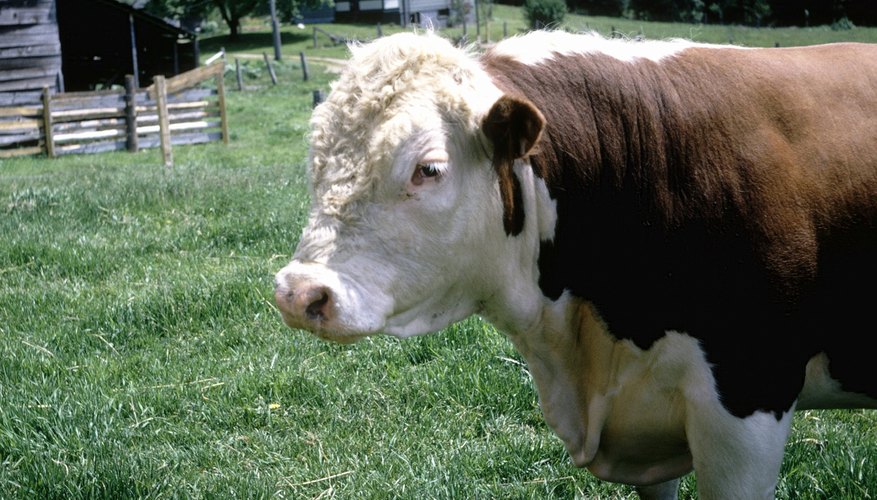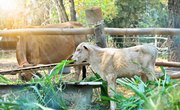
The top three categories for graded beef are prime, select and choice. They are ranked by decreasing amounts of fat within the muscle. Only the top 2 percent of all graded beef in the United States meets the qualifications to grade prime. Approximately 83 percent are considered grade choice and 15 percent grade select. Genetics, diet, days in the feedlot and an animal’s age all determine the quality of beef. Environmental factors such as stress can also influence meat quality and should be minimized.
Choose beef cattle breeds known for producing high quality, better tasting meat. Popular breeds among cattle ranchers include Angus, Hereford, Shorthorn or Wagyu (Japanese breed) cattle. These breeds carry desirable traits such as good feed consumption, superior weight gain and excellent marbling (fat) within the meat. They also reach skeletal maturity (full growth) earlier, which allows them to go to market at a younger age. Age can be a determining factor when grading prime; older animals are excluded from this grade.
Raise cattle from start to finish if possible. Breed animals with superior genetics to produce calves with superior genetics. Purchasing young cattle from good livestock is an alternative to raising from birth. Purchasing or raising young animals allows the producer to monitor and control the calves' environment throughout their lives.
Handle animals quietly and calmly. When running cattle through chutes (handling equipment) avoid injury as that ultimately results in bruised meat. If vaccinating or treating an illness, use subcutaneous (under the skin) injections whenever possible as this reduces damage to muscle tissue.
Provide clean fresh water and ensure all animals have access to it at all times. Allow for grazing if possible. Grass-fed beef is gaining popularity and provides cattle with the correct ratio of Omegas 3 and 6. Grass-fed cattle might take longer to reach market weight but provide good tasting high-quality meat. Feeding corn is another way to add fat to muscle, which is key to grading prime. Once cattle have reached physiological maturity and muscle mass fat is allowed to build within muscle tissue.
Prepare to keep cattle on feed slightly longer than cattle raised for lower grades. Again, marbling is key to grading prime. Because marbling occurs in the final stages of the animal's growth, cattle might need to stay on feed longer to achieve the desired results.
References


